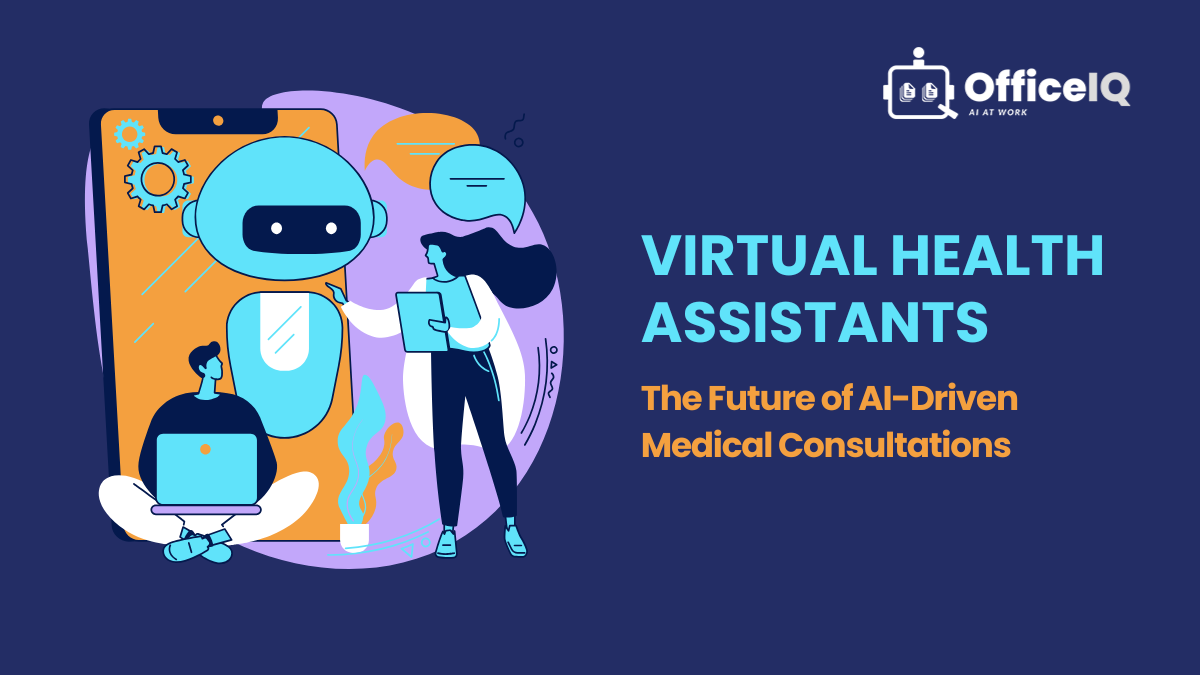In recent years, Virtual Health Assistants (VHAs) have revolutionized the way patients interact with healthcare providers. As artificial intelligence (AI) continues to evolve, these intelligent systems are bridging the gap between patients and doctors, providing round-the-clock medical support, accurate health insights, and improved patient engagement.
What Are Virtual Health Assistants?
Virtual Health Assistants, also known as virtual medical assistants, are AI-powered tools designed to assist patients with medical queries, appointment scheduling, medication reminders, and even basic diagnostic support. They use natural language processing (NLP), machine learning, and voice recognition to simulate human-like medical consultations.
From helping patients track symptoms to providing mental health support, these virtual healthcare assistants are becoming indispensable in modern digital healthcare systems.
How Virtual Medical Assistants Are Transforming Healthcare?
1. 24/7 Availability
Unlike traditional healthcare systems limited by clinic hours, virtual health assistants operate 24/7, ensuring patients get timely medical guidance—even during emergencies.
2. Personalized Healthcare
By analyzing patient data such as medical history, lifestyle, and habits, virtual assistants can offer personalized health recommendations and treatment reminders.
3. Reduced Workload for Doctors
Virtual medical assistants handle repetitive administrative tasks—like appointment scheduling, patient follow-ups, and data entry—allowing healthcare professionals to focus more on critical cases.
4. Improved Patient Engagement
With regular check-ins and proactive health reminders, virtual healthcare assistants improve patient adherence to treatments and medication plans.
5. Early Disease Detection
Advanced AI algorithms can track symptoms and detect potential health risks early, helping doctors intervene before conditions become severe.
Real-World Applications of Virtual Healthcare Assistants
- Telemedicine Platforms: Assisting doctors during virtual consultations and automating patient queries.
- Hospital Chatbots: Providing directions, appointment confirmations, and patient education.
- Remote Patient Monitoring: Tracking vitals and alerting doctors about abnormal readings.
- Mental Health Support: Offering guided meditation, stress management, and emotional wellness check-ins.
Benefits for Patients and Healthcare Providers
For Patients
- Access to instant medical support
- Cost-effective healthcare assistance
- Reduced waiting time
- Better chronic disease management
For Providers
- Streamlined administrative workflow
- Enhanced patient satisfaction
- Data-driven insights for treatment planning
Challenges and the Road Ahead
While the benefits are impressive, there are challenges—like data privacy, regulatory compliance, and the need for accurate AI training. However, with continuous advancements in AI and secure cloud infrastructure, these challenges are being addressed rapidly.
The future will see Virtual Health Assistants evolve from basic query bots to intelligent medical companions capable of performing preliminary diagnoses and integrating seamlessly with wearable devices and electronic health records (EHRs).
Conclusion
Virtual Health Assistants are reshaping the healthcare landscape by providing faster, smarter, and more accessible medical support. As AI technology advances, these virtual medical assistants will not only simplify healthcare delivery but also make it more personalized and preventive.
The era of AI-driven medical consultations is here—and it’s transforming how we care for our health.
FAQs About Virtual Health Assistants
- What are Virtual Health Assistants?
Virtual Health Assistants are AI-powered tools that help patients with medical advice, appointment scheduling, and health monitoring through intelligent automation.
- How do virtual medical assistants benefit healthcare providers?
They reduce administrative workload, streamline patient communication, and enhance efficiency by managing tasks like reminders, follow-ups, and data entry.
- Are Virtual Healthcare Assistants safe to use?
Yes, when developed with proper data security and HIPAA compliance, Virtual Healthcare Assistants protect patient information and offer safe, reliable support.

Leave a Reply